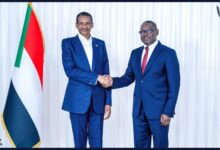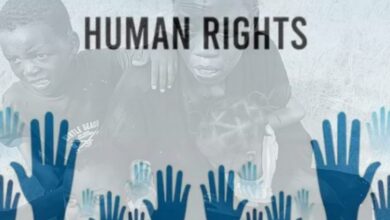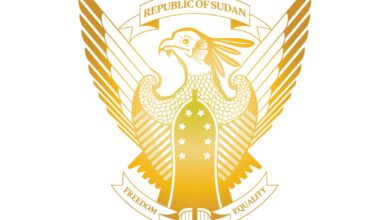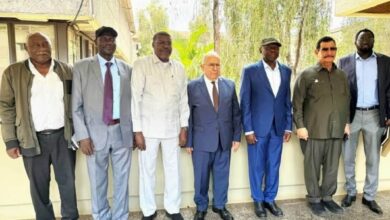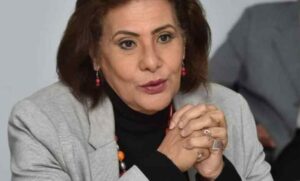
What future awaits Sudan’s Islamists?
Amani al-Tawil
The National Congress Party (NCP) is currently facing real existential challenges on all levels: ideologically, it is suffering from a crisis of legitimacy, identity and leadership; politically, it is facing marginalization and loss of popular legitimacy, while at the organizational level it is suffering from splits, and faces the possibility of international and regional legal prosecution of some of its symbols and leaders, in later stages that may be local or international for party symbols on charges of corruption and human rights violations.
The speech of Nafi Ali Nafi, leader of the Sudanese National Islamic Front and Vice President al-Bashir, reflected the depth of the crisis of the National Congress Party in Sudan, which was in power until 2019, which forms part of the Sudanese Islamists who currently fall under the name of the broad Islamic movement, in what may be a final attempt to jump towards a future that is not determined either for them as an ideological and political movement, or for Sudan, a country that has been living on the edge for more than two years, while Sudanese people of all stripes are displaced to the corners of the earth under an uncertainty umbrella.
First, we note that Nafi’s speech came at a time when his dissolved National Congress Party (NCP) is facing a deep internal crisis, as a significant sector of the party is demanding the convening of a shura conference to determine the future of the party and the validity of its tools at this stage, and above all the legitimacy of its current leadership in light of their significant contribution to the failure of the entire experience of political Islam rule in Sudan, after they had an opportunity that was not available to others at the regional level by holding power and continuing it for three full decades.
This crisis reflected itself in Nafi’s speech in terms of features and depth of content, and was manifested in a number of points, including the failure to recognize the nature of the changes that took place in Sudan and in the region regarding the attitude towards the political Islam movement in the region, especially the Muslim Brotherhood, as he started his speech from the same historical ideological position of the National Islamic Front, completely ignoring the complete failure of this experience and the fall of its political and intellectual legitimacy when it was rejected by the Sudanese people twice: The first in a large-scale uprising in 2013 and the second in a full-blown revolution in 2018.
In his speech, Nafi relied on polarization as a mechanism to divide between two paths, claiming that his party’s paths are the most patriotic in the face of a Western Zionist and Crusader project aimed at controlling Sudanese resources, at a time when his movement and party are accused of looting Sudanese resources over the past three decades to benefit the organization and not the people, in corrupt operations attested to by reports by the Sudanese Attorney General and evidence cited by Tijani Abdel Qader in a critical position on his Islamic religious movement and the nature of the corrupt financial practices it adopted.
Nafi employed this polarizing rhetoric to preserve what remains of the party’s mass bases, an attempt that may be unrealistic, given that the Sudanese and Arab public sphere is no longer attracted to the idea of foreign conspiracy and targeting discourses and has become more aware of the role of the internal political component in any country to shape its destiny when it is capable of correct mechanisms and realistic ideas that take general national interests as the main determinant of ideological practice of an intellectual nature and political practice of an operational dimension.
Nafie also tried to practice types of ambiguity and obfuscation that he thought would enable him and his party and perhaps his movement to reposition themselves in the Sudanese political equations the day after the war without making any valuable concessions, relying on the combat performance of the members of the broad Islamic movement in the current war, ignoring the fact that the Sudanese army is able to control the internal Sudanese rhythm despite all its issues and challenges as a holder of regional and international legitimacy that its allies and enemies do not have, and that its enemies do not have.
Nafie ignored that his party and movement, although they succeeded in aborting the change in Sudan, no longer controls the joints of all the state that they are accustomed to and know, but they now control part of the state under the umbrella of not insignificant challenges, because victory in this war, even if it happens, does not mean the return of Sudan in its old form, as informal actors have acquired additional economic and combat tools that have strengthened their power and ability to reject or resist the authority of the so-called traditional deep state.
Nafie’s change in his recent speech is very limited. He replaced the “civilizational project” with what he called the “stability project,” ignoring the fact that the title of stability is national consensus and not the practice of intellectual and political polarization, which means recognizing and accepting the presence of other political forces in the Sudanese equation, especially since the National Congress Party, which Nafie represents, was and remains excluded from any presence during the transitional period, an expression of the rejection by a broad popular sector that went against the rule of President Bashir, whose political system was a title for Sudanese Islamists.
The NCP is currently facing real existential challenges at all levels. At the intellectual level, it is suffering from a crisis of legitimacy, identity, and leadership; at the political level, it is facing marginalization and loss of popular legitimacy; at the organizational level, it is suffering from splits and is facing the possibility of international and regional legal prosecution of some of its symbols and leaders, in later stages that may be local or international for the party’s symbols on charges of corruption and human rights violations.
These challenges make the future of the party, contrary to what Nafie claims, highly questionable, especially in light of the ongoing political transformations in Sudan and the widespread societal rejection of its legacy.
At the regional and international levels, there are trends that seek to classify the Sudanese Islamist movement, with its political manifestation, the National Congress Party (NCP), as organized terrorist manifestations, given the nature of its practices under the umbrella of Bashir’s rule, especially in Darfur, as well as the practices of some of its members in the current war. Of course, Arab regional powers support this trend, and in this context, the scenarios currently put forward may crystallize into a number of paths, including:
A complete political exclusion of the Islamists from future governance structures in Sudan, especially in light of the speeches of Ahmed Haroun, Ali Karti, and most recently Nafi Ali Nafi, driven by local rejection and regional and international pressure. The second scenario is terrorist designation. The possibility of official designation as a terrorist group is a major concern for the movement’s survival, as evidenced by the ongoing discussions in the US Congress about the Muslim Brotherhood.
The third scenario tends towards the possibility of the continuation of the Sudanese Islamic Movement, but with two important conditions: First: Recognizing the nature of the current changes, especially those related to the weak possibility of employing the Sudanese army in the ideological and political project of the Islamic movement, as there is regional and international resistance to this path that the movement will not be able to confront in light of its deep internal crises.
Second: The need for a real and serious repositioning at the ideological and political levels that sees the magnitude of the responsibility of the movement and its leaders for the failure that took place, as it is necessary to condemn the wrong practices of the movement and even apologize to the Sudanese people.
Third: Recognition and coexistence with the other, i.e. rejecting the ideology and mechanisms of absolute empowerment, and finding common spaces with the Sudanese political forces in all their manifestations emanating from the December revolution, thus opening the way for the round table for Sudanese national consensus, as this is the only way to defeat what Nafie called the Zionist Crusader project, not populist chants, mobilization and incitement against a future inclusive project for Sudan and the Sudanese



